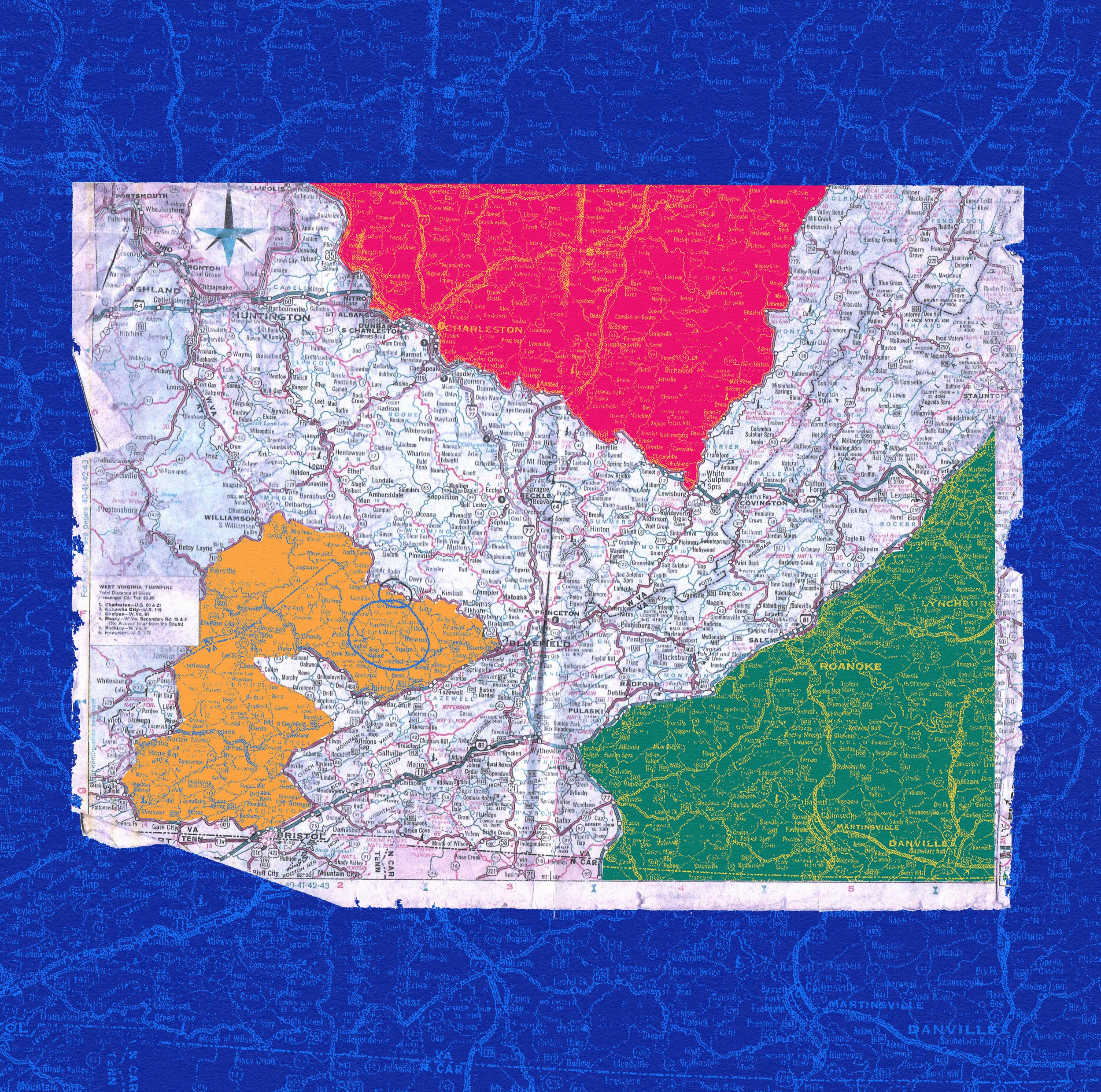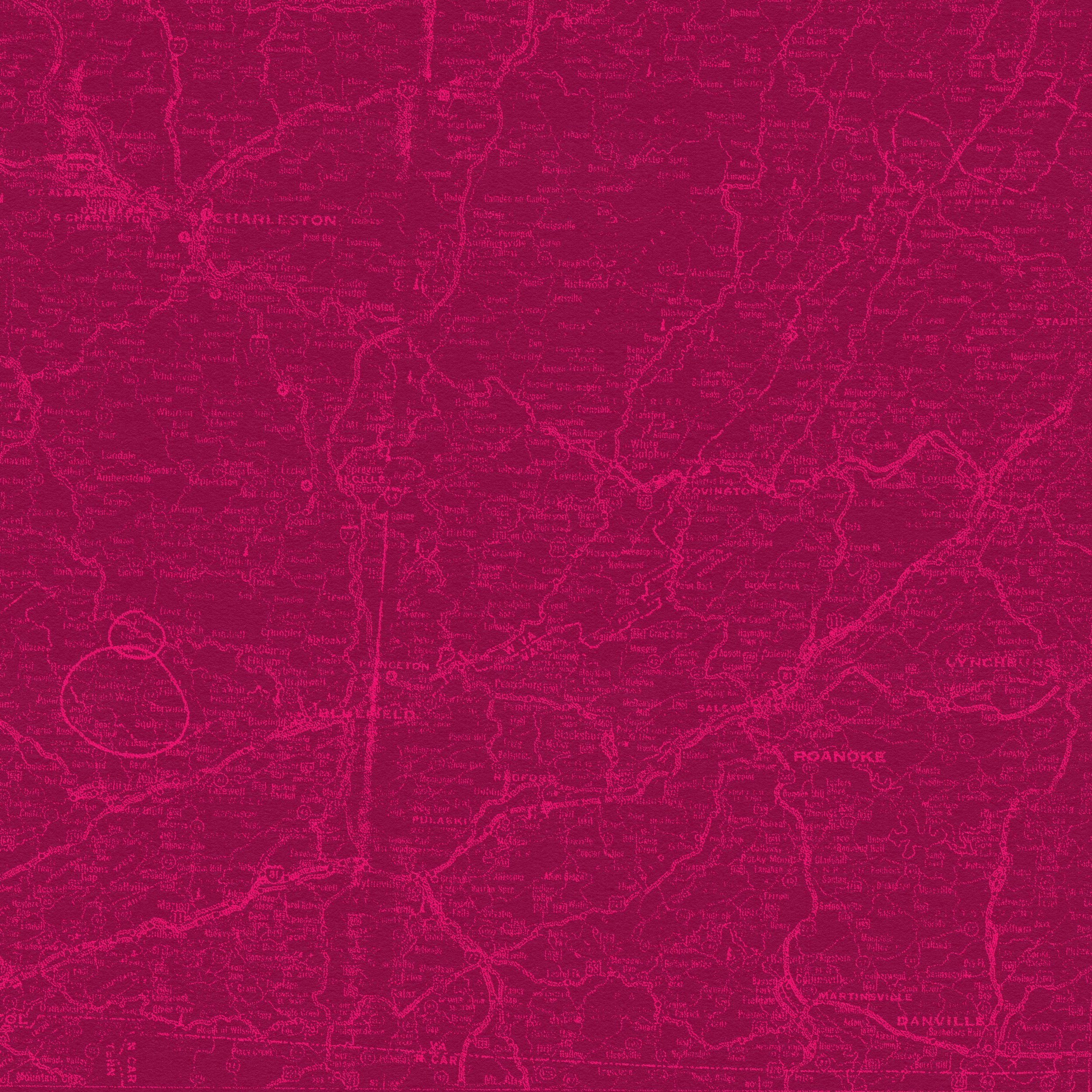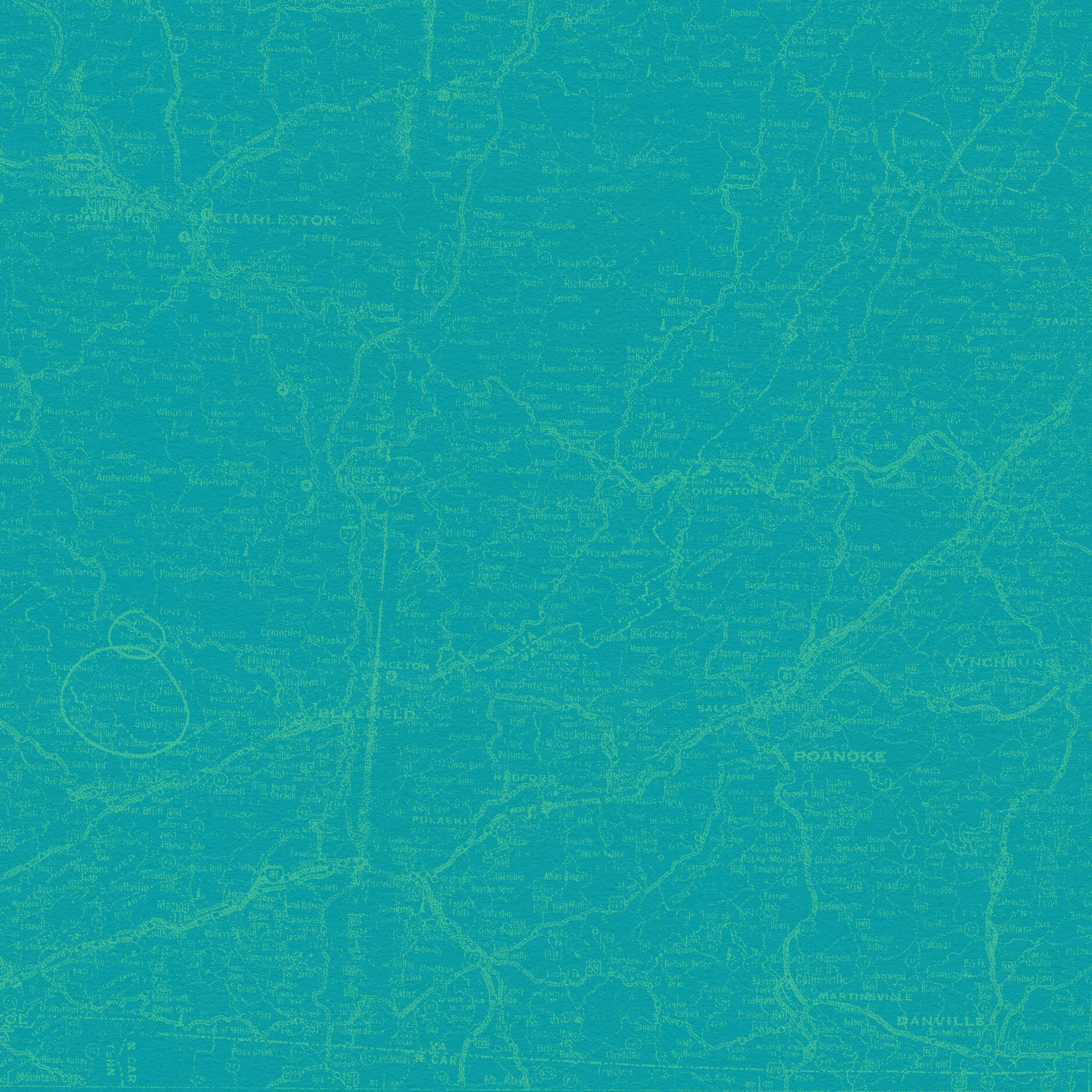

PHOTO TRIP
Making multiple trips to Appalachia, Rube visited each site in the book, hung out with the locals, picked up every hitchhiker he saw, and intentionally got lost in the mountains and hollers as much as possible. Heading west he followed Shelly and Deke’s route several times, making new discoveries with each trip. Here are some photos (mostly his) of settings from Let the Rivers Clap Their Hands.

The Silver Bridge
“Monster of Beauty”… arching high above the river like a tired old dragon trying to keep its belly out of the water.
Cabin of Mahala Mullins; Legendary Melungeon moonshine maker. Some stories have her weighing up to 600 pounds.
“Ev’rybody knew she made moonshine, and once’d in a while the law’d come and take whatever she had and bust up ‘er still if’n they could find it, but they never arrested ‘er, ‘cause she was too big ta fit through the jail door.”
Marysville, Kansas
Shelly walked up to the statue, envious of the rider leaning forward in the saddle, hat brim bent back, spurring on his galloping steed. “It’s a tribute to the pony express,” she called back to Deke, who had stayed in the truck. “It says here we been drivin’ on the Pony Express Highway.”
“I wonder why we ain’t seen any of ‘em yet,” Deke said.
Johnstown, Nebraska
“That bank looks like it’d be purty easy ta rob,” Deke speculated.
Cucumber, West Virginia
They pulled into the nearly full parking lot of a flat-roofed, squalid looking establishment called Rattler’s Den.
“This place can git a little rough sometimes,” Shelly said.
Mark Twain Museum; Hannibal, Missouri
Shelly dragged Deke from building to building, reading aloud each sign in front of them. When they came to a white fence Shelly pointed at it. “Look Deek, it’s the fence that Tom Sawyer talked ‘em boys inta paintin’ for ‘im.”
Deke looked at the fence. “Well,” he said, “they done a good job, it’s still real white.”
Deadwood, South Dakota
Deke and Shelly stood in the warm afternoon sunshine, respectfully admiring the graves of Wild Bill and Calamity Jane.
“I’ve always kinda liked ol’ Calamity,” Shelly said. “She was a tough woman when it was tough ta be a woman.”
Deke looked at Hickock’s tombstone and nodded his head. “I’ve always thought me an’ Wild Bill Hickock was a lot alike. Maybe someday they’ll bury you an’ me side by side too, jest like Wild Bill an’ Calamity Jane.”
Shelly started to say, Over my dead body, but caught herself in time.
Peapatch, West Virginia
Near the summit of the winding hill where Peapatch Road crossed Route 635 and climbed out of Wimmer Gap, the Stamper house sat, south of the road by necessity but north of the state line by intention, plumbed there by Shelly’s grandfather. Though most of the Stamper’s twenty acres lay in Virginia, Lemuel Stamper wanted to make sure his offspring were born in West Virginia. This made them hillbillys instead of Southerners.
Genetics and lifestyle would have made them hillbillys anyway, but Shelly was always grateful the designation was official.

It makes us hillbillies look good for a change.
It makes us hillbillies look good for a change.
The characters might be fictional, but the settings are real. Both come alive in this novel that begins in Peapatch, West Virginia then takes the reader on a rollicking trip across 1973 America.

Author Bio
Ohio State business grad Rube Wrightsman quit his job at age 24 to become a saddle tramp. Riding a shaky BSA Lightning, he headed west with his pardner, a 6’4” biker who went by the name of Bruno Degenerati. After 10,000 miles of adventures and flopping as a Nashville songwriter, Rube settled in northwest Montana.
For most of the next 25 years he lived without electricity or plumbing in a tiny earth-sheltered cabin he’d built in the mountains outside of Paradise, making mead and doing every dirty, dangerous, low-paying job that nobody else wanted. Between jobs he traveled, wrote a newspaper column and magazine articles. At age 50, on a lark, he infiltrated the local police department as a reserve officer and somehow ended up as Undersheriff of Sanders County. Now retired and very happily married, he decided to write a novel about the Appalachian and western characters he loves so well.

Book Description
Tall, tough, and headstrong, Shelly Stamper from Peapatch, West Virginia has wanted to be a truck drivin’ cowgirl since she was six: “Out west, in some wild place on the prairie or in the mountains.” But tragedy intervenes and at 17 she’s dancing in a dive bar, getting drunk every night and consorting with every bottom-feeding male loser who comes along. When the dumbest of the lot offers her a shot at her dream, she grabs at it out of desperation. Dump truck driver Deke McConahay knows all about being a cowboy and to prove it he wears a John Wayne belt buckle. Smitten with Shelly and armed with his Winchester and 10 gauge shotgun, he’s hoping they get in “some real tough fixes” where he can “prove up” and show Shelly “what kind of man I am when the chips are down.”
Afraid that the Real West is gone, they soon discover it can be as exciting and unpredictable in 1973 as it was in 1873. Heading for Montana in Deke’s increasingly battered pickup, they are soon caught up in wild exploits with cowboys, Indians, rattlesnakes, blizzards, and grizzly bears. But there is more to Shelly than Deke knows, or even she knows, and when a life-long search draws her into a perilous and terrifying encounter, she has no choice but to face it head on.

Deke’s finger tightened on the trigger and he almost choked with fear and sickness at what he was about to do.
Deke’s finger tightened on the trigger and he almost choked with fear and sickness at what he was about to do.
“We’re either finally in the West, Deke, or the Twilight Zone,” Shelly said.
“We’re either finally in the West, Deke, or the Twilight Zone,” Shelly said.
“No, Mama,” Shelly said to her, “I need ta leave…’fore we stop lovin’ each other.”
“No, Mama,” Shelly said to her, “I need ta leave…’fore we stop lovin’ each other.”

BOOK
RUBE
sagehillrube@hotmail.com

BOOKING RUBE
Available for readings, book signings, speaking engagements, seminars, workshops and conferences.
Award-Winning Newspaper Columnist
Five times 1st-place for Best Humorous Column by the Montana Newspaper Association
Published & Recorded Nashville Songwriter
Novelist: Let the Rivers Clap Their Hands
Freelance Magazine Writer: Mother Earth News, Travel Choices Northwest & others










